What to say when someone dies: Condolence messages and advice from bereavement charities
Find the right words to bring comfort during a difficult time
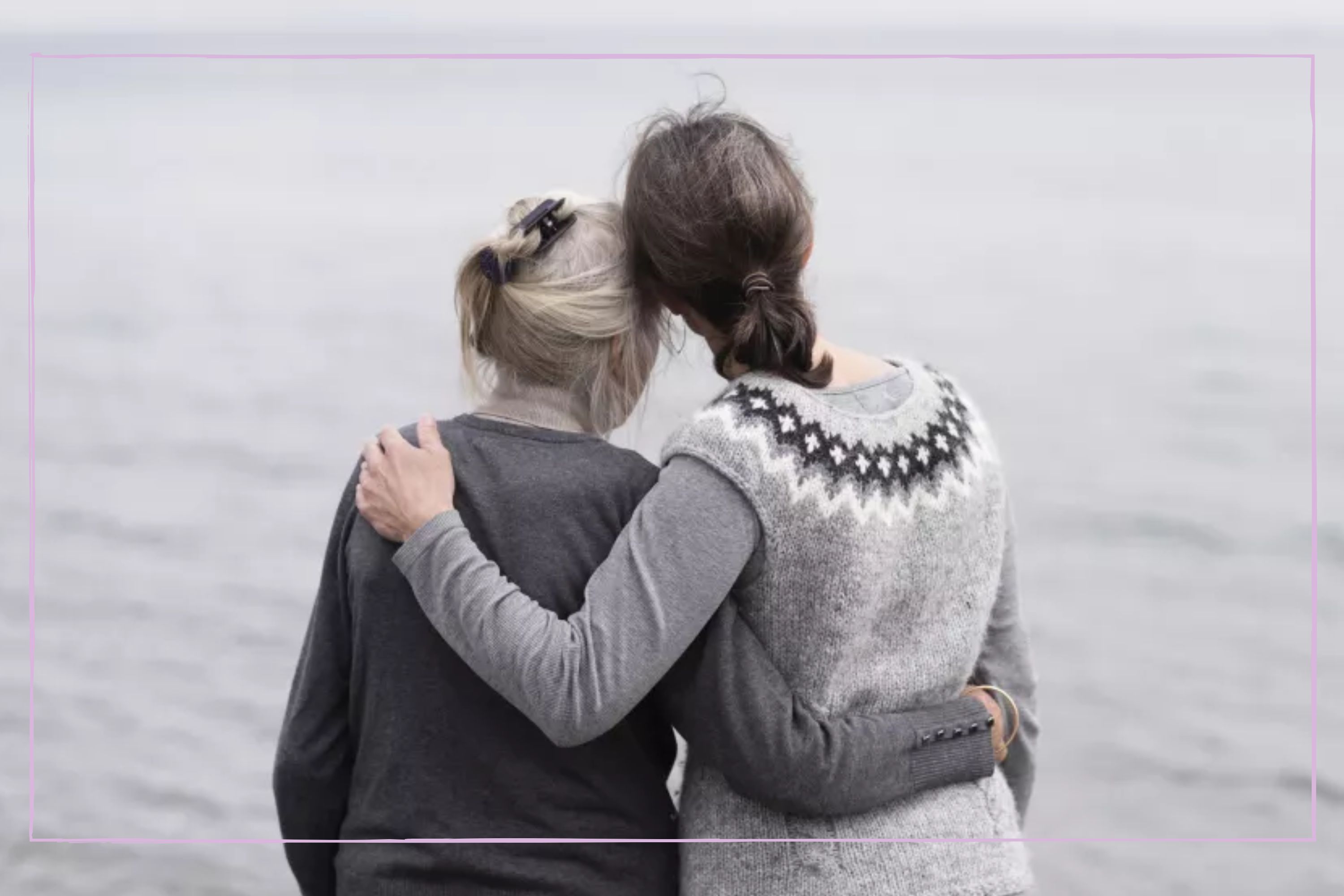
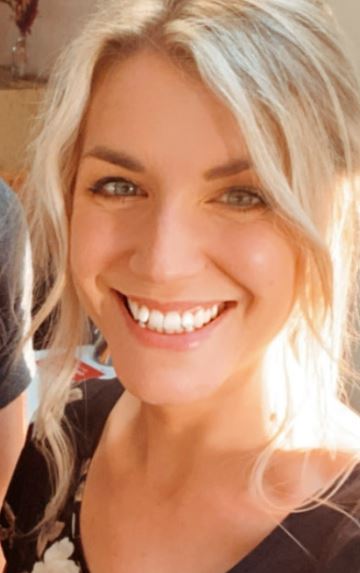
Emily Stedman
Knowing what to say when someone dies - be it to a friend, family member, colleague or anyone who has lost someone dear to them - is an incredibly sensitive topic.
Grief is different for everyone. It manifests itself differently in different people and no one person’s experience of grief is the same. As a result, there isn’t one formula for knowing what to say when someone dies. However, having some comforting words to hand or spending some time thinking about what to write in a sympathy card can be great first steps in offering support to those who have suffered a loss.
Charities that support both adults and children coping with grief and loss share their insights and advice on what to say when someone dies. Along with tips on what to do to support anyone in your life who has suffered a bereavement.
What to say when someone dies
When considering what to say when someone dies, it's important that you're aware of how your words come across and additionally how they can be construed by anyone mourning.
Pam, a volunteer for The Bereavement Trust, told us that while it is quite normal for people to be afraid to contact those who are bereaved - because they don’t know what to say - it is so important remember that a friendly voice gives so much comfort to those who are going through a sad, confusing, lonely and worrying time.
A post shared by Liz Newman (@liz_newman_writer_)
A photo posted by on
"When someone loses a loved one they need to talk," Pam explained. "We at the Bereavement Trust think the most important thing is to listen, to be understanding and show empathy.
"Those who have lost someone feel such pain and anxiety and need to know that you care for them and will be there for them, whenever needed. They will feel extreme loneliness and need regular contact from friends and family to help support them.
GoodtoKnow Newsletter
Parenting advice, hot topics, best buys and family finance tips delivered straight to your inbox.
"Be patient, understanding and only give advice if asked. Grief takes time to start to heal and may take months or several years."
What to say when someone dies - condolence messages
- "I don’t know what to say but I am so sorry to hear this news."
- "I am so sorry for your loss – you are in my thoughts."
- "I’m so sad to hear this and I’m here if you need to talk."
- "He/she was such a wonderful person/so selfless – full of positivity/kindness [whatever feels appropriate] – they will be hugely missed."
- "He/she will be missed so much – they were so special. You are in my thoughts."
- "I am so very sorry to hear this sad news. I cannot imagine how devastated you are."
- "So very shocked and saddened by this sad news. Hard to believe [name] has gone. I am here when you need me."
- "This is so heartbreaking – I wish I could be there to give you a hug."
- "I cannot imagine the hole that she/he will have left. If you need anything, let me know."
Cruse Bereavement Care offered these suggestions as good starting points if you are finding it difficult to know what to say when someone dies. The charity works to offer support, advice and information to children, young people and adults when someone dies.
Andy Langford, Clinical Director at Cruse Bereavement Care, told us: "The most important thing is to not worry about saying the wrong thing. Often, there isn’t a “right” thing to say.
"The feeling will come across and it is more important that you say something than that you find the perfect words," he adds.

If you are struggling with what to say when someone dies, Andy’s advice is to not avoid the truth. Simply acknowledging the news of the death, share your condolences and say how sorry you are that their friend or relative has died.
You should also remind the person who is bereaved that you are there for them. You can say this in person, send a card, text or email. However you get in touch, it is important to do so and can mean the world when someone is feeling isolated in their grief.
Talking to a bereaved parent or sibling after a loss
"Those who are bereaved are hurting in a way impossible to imagine," Nicola Whitworth, founder of SLOW, tells Goodto. "On some days, nothing anyone could say would be ok, as the grief is so intense, and the world so wrong, that it can feel that there is no consolation.
"Therefore, my suggestion is that an overarching sensitivity, presence and willingness to be there for someone in grief is the most valuable gift that can be given by a friend or family member towards a grieving individual."
SLOW is a charity that works 'for bereaved parents, run by bereaved parents'. The groups are for every parent who has lost a baby or child of any age, and in any circumstances, at any point after their loss.
A post shared by Grief Support (@slowgroup)
A photo posted by on
She adds: "As a culture, we literally cannot bear the pain of loss. So, to be able to listen to someone without 'trying to make it better' or overlaying someone's feelings of grief with advice, opinion, or judgement, is the most important thing.’
"Generally, it's felt that to be present and unafraid to sit quietly with someone whilst they cry, talk or just remain quiet is the most helpful," Nicola explains. "A listening ear is the most appreciated quality.
"It's fine to cry and show that you share in their sorrow, but remember it's their sorrow and not yours, so make them the centre. You will not upset a grieving person by mentioning the name of their loved one, and sharing your own memories. By talking about their loved one, you are not 'reminding' them - they have not forgotten!"
Based on Nicola’s personal experience and her experience working for bereaved parents through SLOW, she has compiled a list of what to say when someone dies to bring comfort, salve and relief.
What to say to a grieiving parent or sibling - actions and messages
- "I am so sorry to hear about your loss"
- Share memories and look at photos if the parent wishes
- "What has been the hardest to bear today?"
- "How are you managing , today"
- "I'd love to take the dog for a walk/get the shopping for you today"
- "Would you like to have a warm bath /sleep whilst I take the kids to the park?"
- "Tell me, about your child/father/mother/family member/friend - what were they like?" (if appropriate)
- "I remember when ......." share recollections of times with the person who died.
What to say to children when someone dies
"As a general guidance what we say to anybody that might be coming into contact with a bereaved child is acknowledge the death," Suzie Phillips, associate director at Winston’s Wish, tells us.
"Adults can be worried about talking to children about a death because they worry that they will somehow make it worse and cause the child distress. However, the line we often use is ‘nothing you can say can make it worse because the worst has already happened’."
Winston's Wish is a charity that supports children and their families after the death of a parent or sibling. SUzie has shared her professional advice with us based on her many years of experience working, counselling and teaching on this incredibly sensitive topic
"Adults can often feel that they need to have all the answers, which can put people off talking about it in the first place but actually the most important thing is just being there and listening," she explains.
"It might be ok to say 'I heard your grandma died, I’m here if you want to talk' or ‘I hear that someone has died, I’m sorry to hear that', for example. Also, as children might worry about bringing their bereavement up themselves, for an adult to start by saying that and acknowledging the loss, it may take some of the pressure off them and be enough to make them feel more comfortable.
"Sometimes for children that will be enough – that you have acknowledged the loss in their lives and shown your support of them."
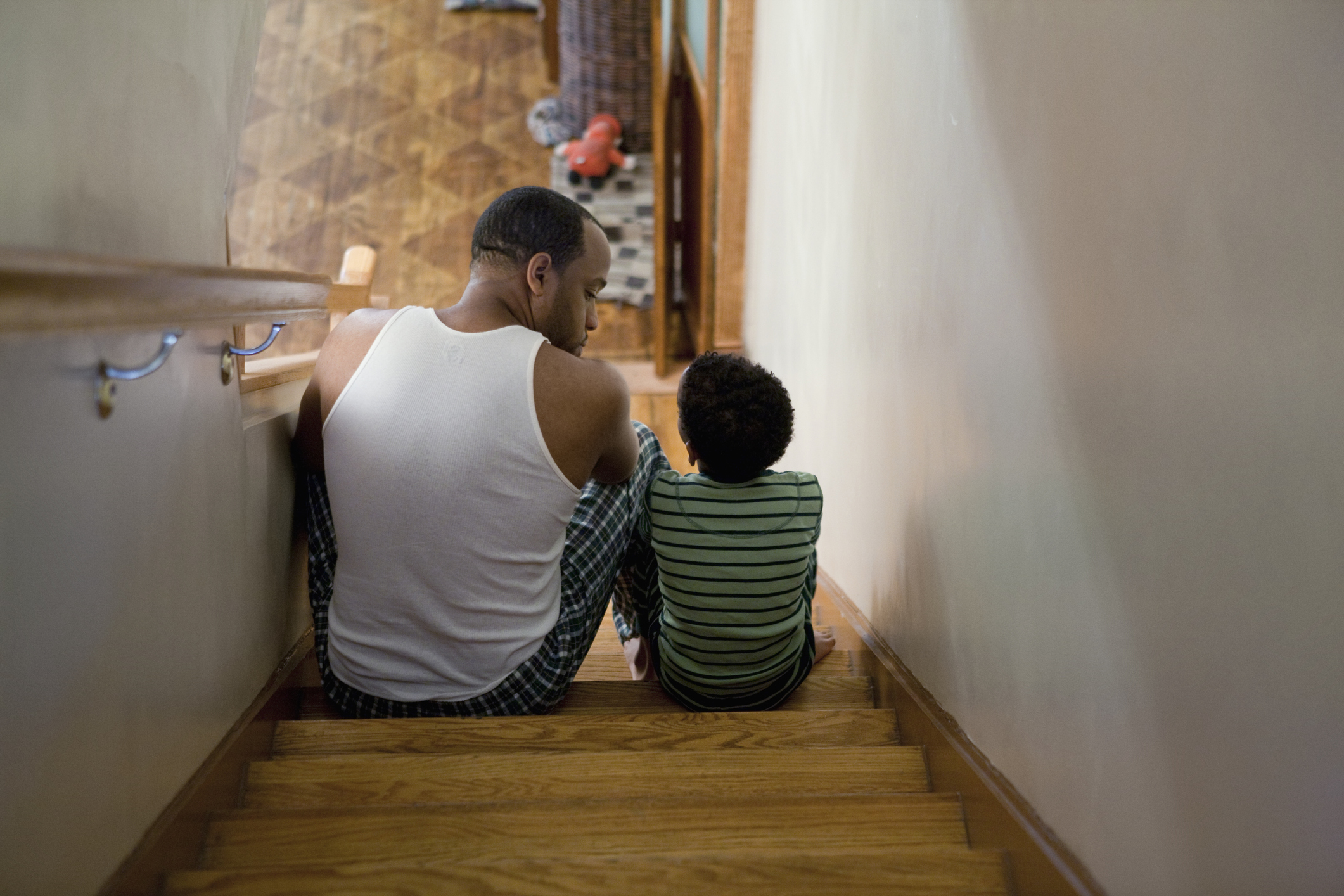
"Afterwards, just spending time together with the child so they don’t feel alone, is enough without talking further about the death," Suzie continues. "Going for a walk, playing football, doing an activity together will allow space and time for conversations to organically happen about the lost loved one."
Suzie told us that it is always advisable to try and talk to the families first before talking to a child about the loss of a loved one, just so you are aware of how much the child knows about the death.
Once you have acknowledged the death of a loved one with a grieving child, Suzie also expressed how important it is to help the young person continue to feel connected to the person who has died:
"Making memories such as memory boxes or memory jars or even just talking about the person who has passed away is really important to help children maintain that connect with a person even when they have died. This can provide comfort and solace to children who are grieving."
It’s really important, Suzie explained, that children have their feelings validated when they are grieving. That they have a chance to express what they are feeling. For little children, they will also need help in putting words and names to what they are feeling.
"Using phrases such as 'Are you feeling sad today?' Or, 'are you missing someone today?' Or, 'are you feeling sad or angry right now?' can help children identify and express their emotions."
Saying something like 'I wonder if you’re angry because you’re feeling very worried?' will help children to understand their emotions and feelings. It’s important to do this instead of reacting to their anger, changed temperament or personality with criticism.
"It’s harder for children to grieve because they have not yet built up that complete adult understanding of those emotions and feelings yet to express themselves," Suzie adds.
"They need to know it’s okay to feel whatever they are feeling. Grief is an isolating experience for adults and children alike. So children need to know that what they are feeling is normal. They need to reassured that there isn’t a right or wrong way to grieve."
Additional support, links and free services
- The Good Grief Trust - thegoodgrieftrust.org
- Cruse – Free helpline: 0808 808 1677 - cruse.org.uk
- Child Bereavement UK – Free helpline: 0800 02 88840 - childbereavementuk.org
- Winston's Wish - Free national helpline on 08088 020 021 - winstonswish.org
- Child Death Helpline - Free helpline: 0800 282 986
- Grief Encounter - Free helpline: 0808 802 0111 - griefencounter.org.uk
- Sands - Free confidential helpline for anyone affected by the death of a baby: 0808 164 3332 - sands.org.uk
- Survivors of Bereavement by Suicide - 0300 111 5065 - uksobs.org
- The Lullaby Trust - Support helpline: 0808 802 6868 - lullabytrust.org.uk
- SLOW - slowgroup.co.uk
- Young Minds - youngminds.org.uk
- COVID-19 Bereavement National Helpline - 0800 2600 400
We spoke to the following experts for this piece:
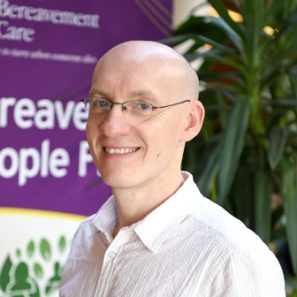
Andy Langford is the Clinical Director for Cruse Bereavement Care – the largest bereavement charity in the UK. Andy leads on Cruse’s direct support to bereaved people in England, Northern Ireland and Wales.
Andy has worked in the voluntary sector for over 20 years. This includes 17 years in bereavement (four and a half of those for Cruse). Andy is a qualified Integrative Counsellor, Life Coach and Cognitive Behavioural Therapist, and has an MSc in Voluntary Sector Management from Cass Business School. Andy has practiced independently as a therapist, and currently provides training for organisations and staff/volunteer groups, particularly in the area of suicide prevention. He has been an accredited member of the BACP for over ten years.
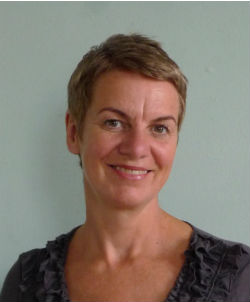
Nicola Whitworth has been facilitating groups and working with individuals as a creative therapist for over 30 years. She studied at the Institute of Group Analysis in Group Dynamics and holds a Certificate in Counselling Skills from Birkbeck College, University of London. She more recently trained at the national Child Bereavement UK charity in ‘Advanced Facilitation’ Skills for Bereavement groups’, in ‘Traumatic Grief,’ and in ‘The Impact of Suicide on Families’.
Following the death of her daughter Naomi Grace in 2005, Nicola Whitworth co-founded SLOW to support bereaved parents. Nicola facilitates the North London SLOW support groups and provides training on parental bereavement to charity and healthcare professionals.
Video of the Week

An internationally published digital journalist and editor, Rachael has worked for both news and lifestyle websites in the UK and abroad. Rachael's published work covers a broad spectrum of topics and she has written about everything from the future of sustainable travel, to the impact of the coronavirus pandemic on the world we live in, to the psychology of colour.
- Emily StedmanFeatures Editor